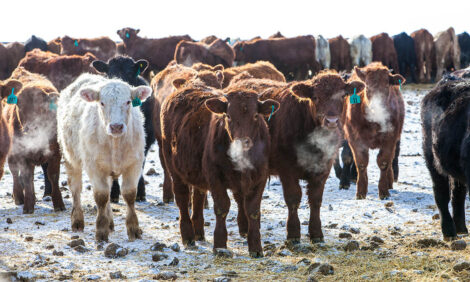



Roles of Dairy in a Healthy, Sustainable Diet
ANALYSIS - Research into the role of dairy in diets can play an important part in identifying key markets for products.At the same time, more research is needed into how diets can become more sustainable, as the world’s food supply comes under increasing pressure from population growth, and people in developing countries increase their consumption of meat and dairy products in an effort to emulate Western habits.
At the recent AHDB Dairy Discover, Innovate and Grow Conference, Dr Ditte Hobbs from the University of Reading presented her work on how diets containing different amounts of dairy products compare in terms of their environmental impacts and meeting nutritional requirements.
Her study looked at four different diets from dairy-free, to low, to high dairy consumption, based on real dietary patterns from the UK’s National Diet and Nutrition Survey.
As well as looking at the cost and nutritional benefits of these diets, Ms Hobbs modelled their environmental impact using parameters such as land use, greenhouse gas emissions, eutrophication and acidification potential.
Interestingly, she found that high dairy consumers tended to have a healthier diet more generally – except for a cake and biscuit habit. Low dairy consumers ate more processed food and sugary soft drinks.
Meanwhile, those on dairy-free diets seemed to have a similarly healthy diet to high dairy consumers, suggesting they just replaced dairy with alternatives such as soy milk.
The high dairy diet contained more calcium, iodine, vitamin B12, riboflavin and saturated fats. The low dairy diet did not meet some of the government’s recommended requirements for these nutrients, and the dairy-free diet did not meet requirements for either calcium or iodine – although many dairy alternatives are fortified and could make up these deficiencies.
Iodine is a particularly important nutrient for pregnant women, as it is involved with brain development in the unborn baby, suggesting an area where increased dairy consumption could improve health.
The other data in the study showed that whilst high dairy diets would have greater environmental impacts such as land use and eutrophication, there was very little difference between the greenhouse gas emissions of the diets, and the low dairy diet was more expensive in online shopping tests.
Ms Hobbs said that other studies had shown through modelling that it is possible to reduce greenhouse gas emissions by 36 per cent, whilst meeting nutritional requirements, and without eliminating meat and dairy in diets or increasing cost.
However, she said research linking sustainability and health is in early stages and more research is needed to find out how to meet nutritional requirements can be met without costing the earth.
She added that over-consumption must be tackled to improve health and ensure adequate food supplies, and that if more sustainable diets were identified, they would need to taste good to encourage people to stick to them.



